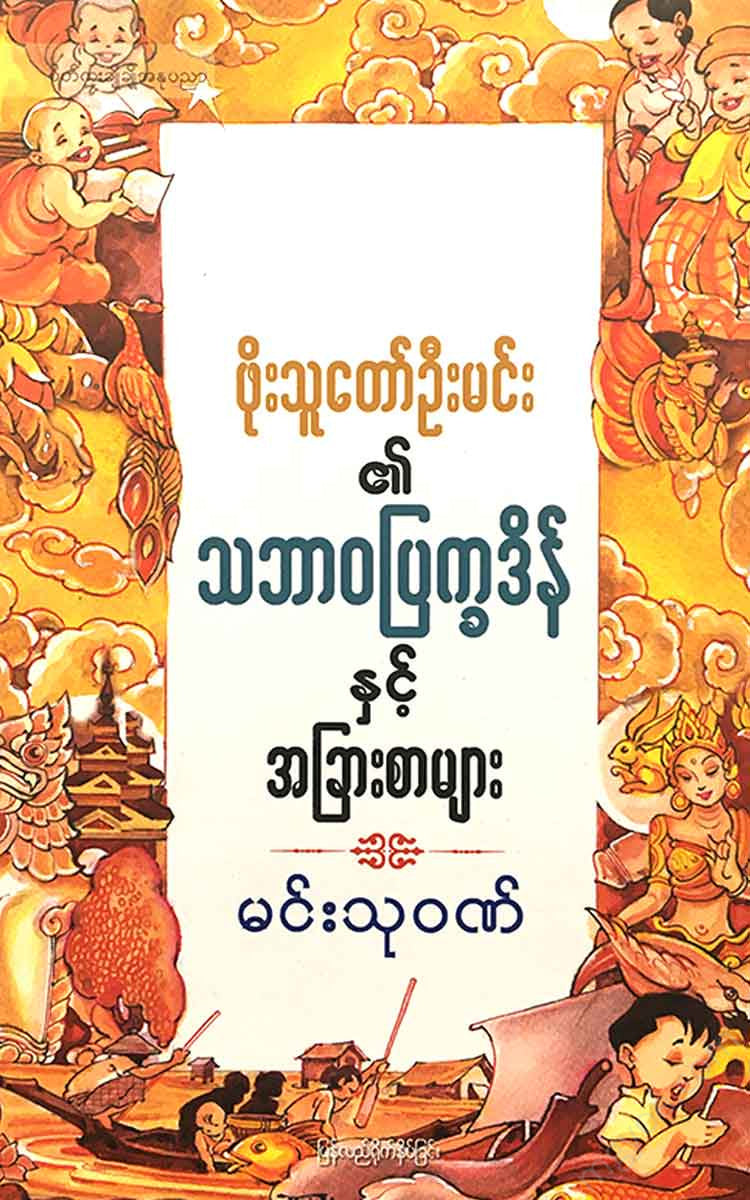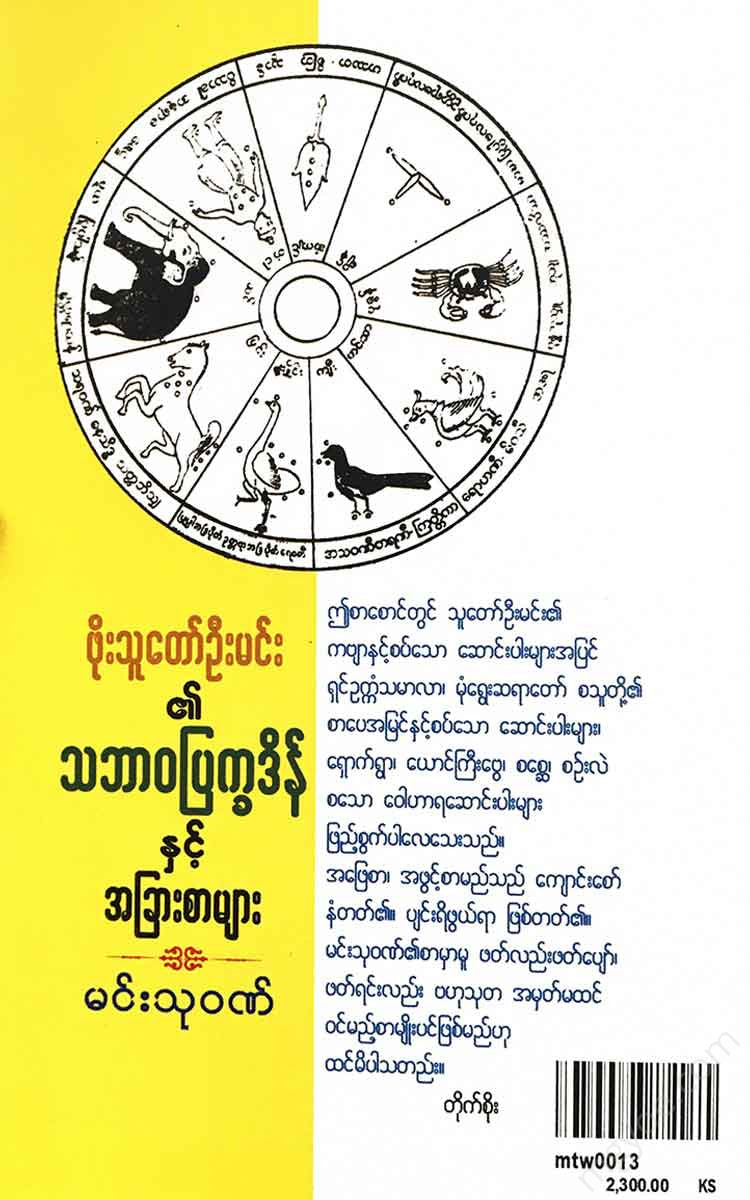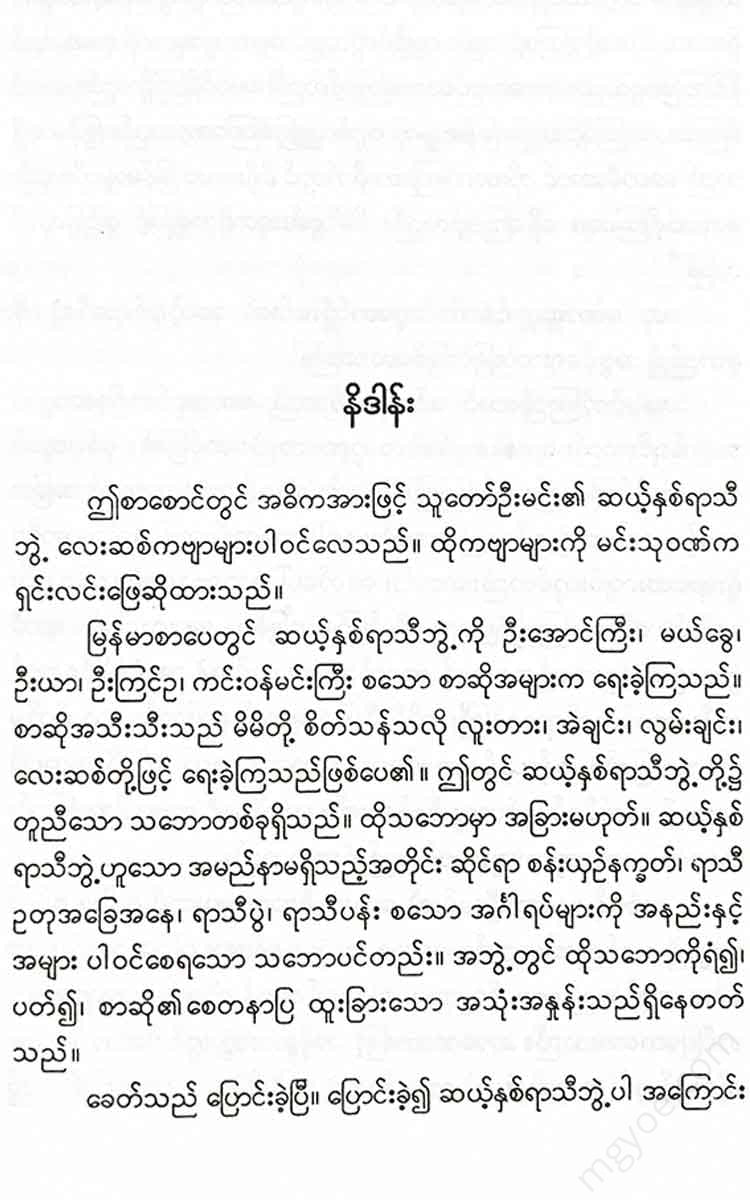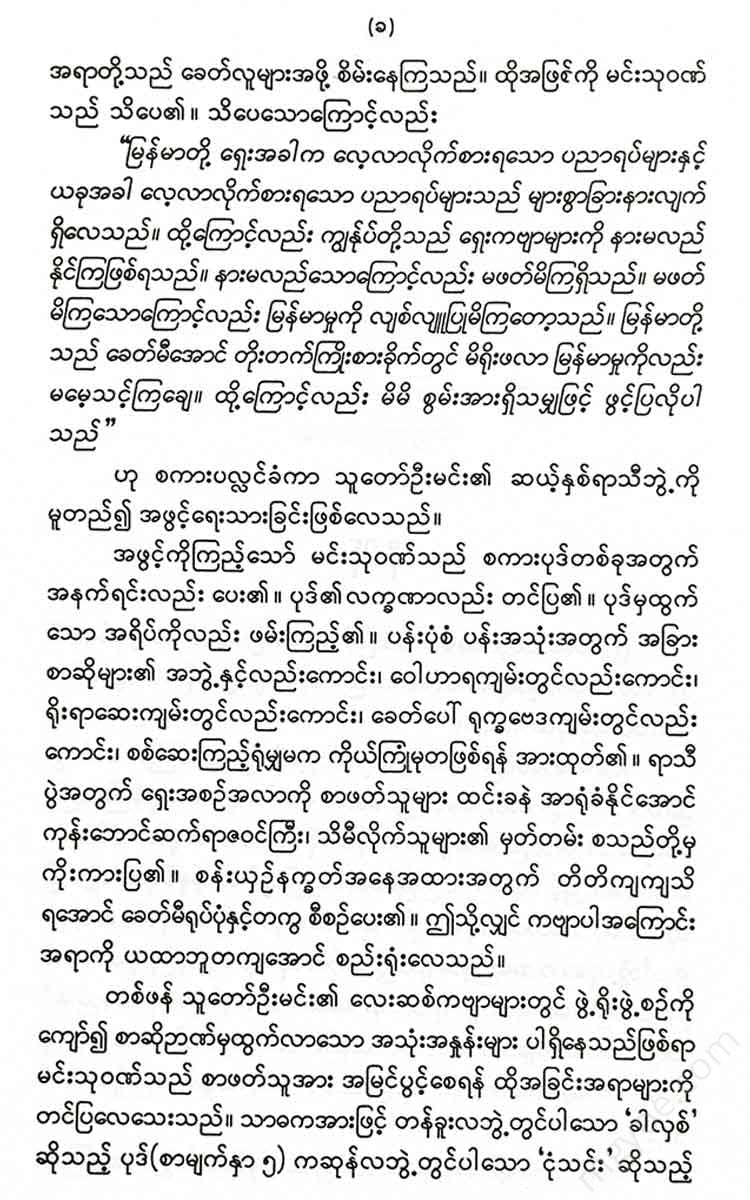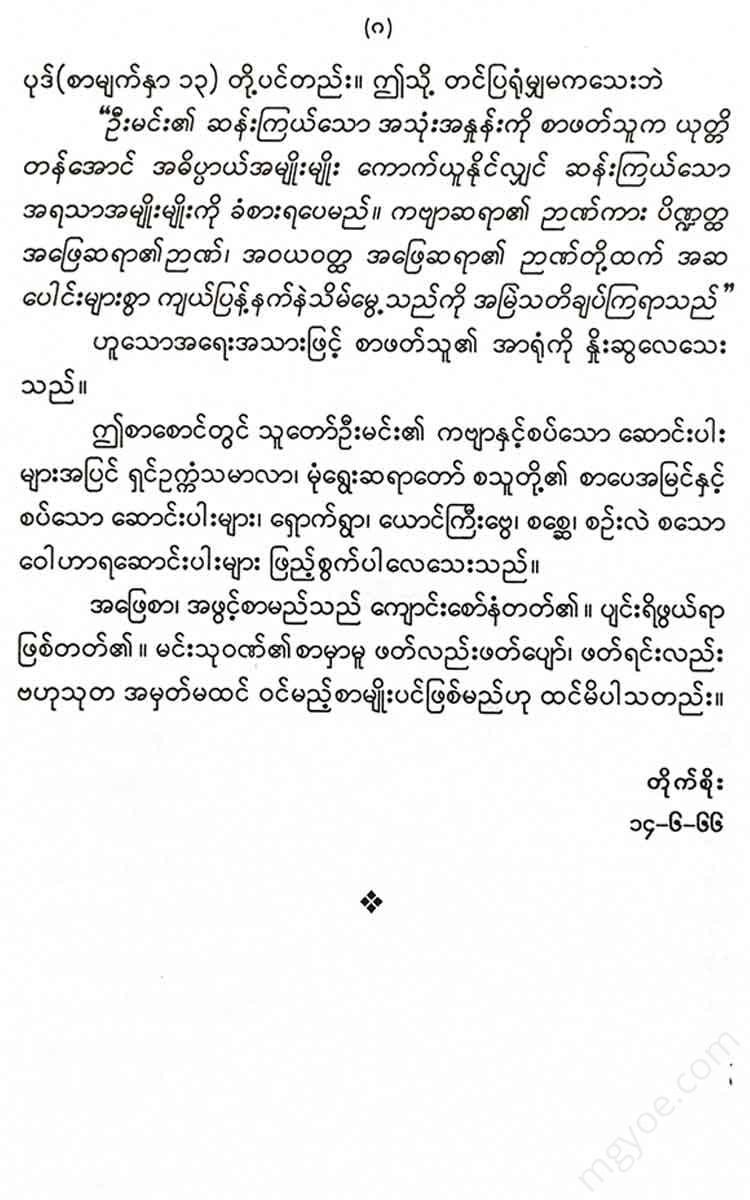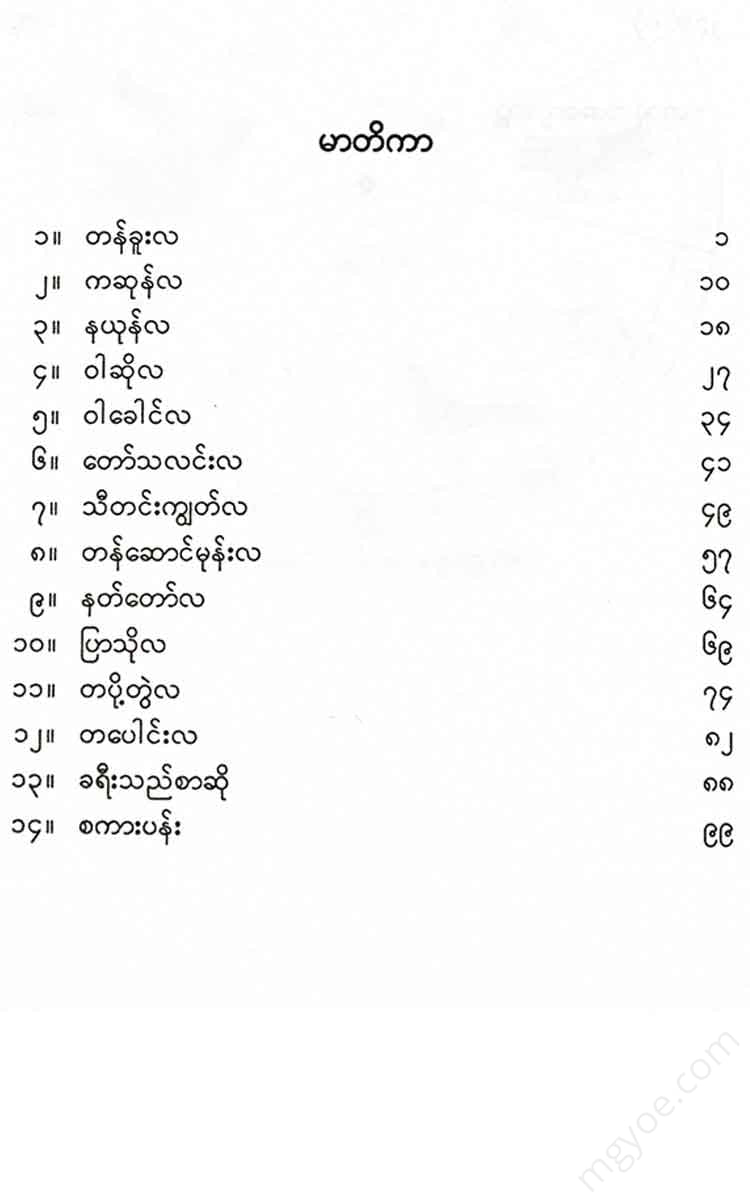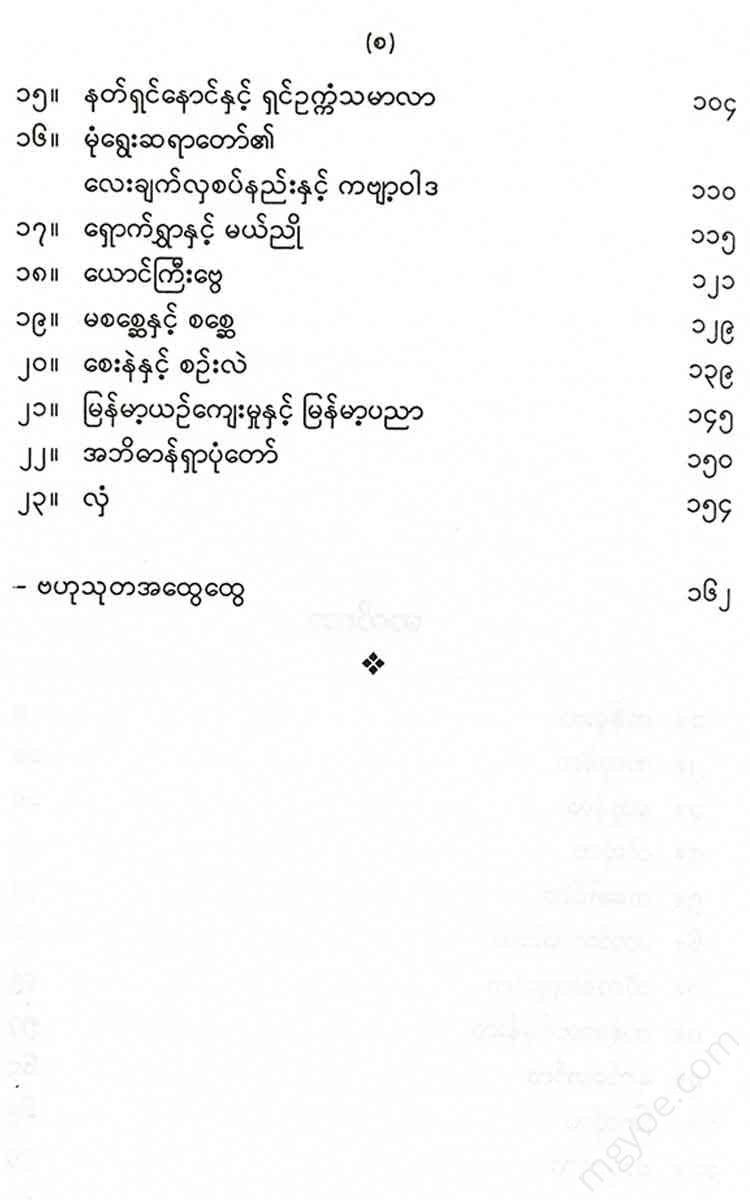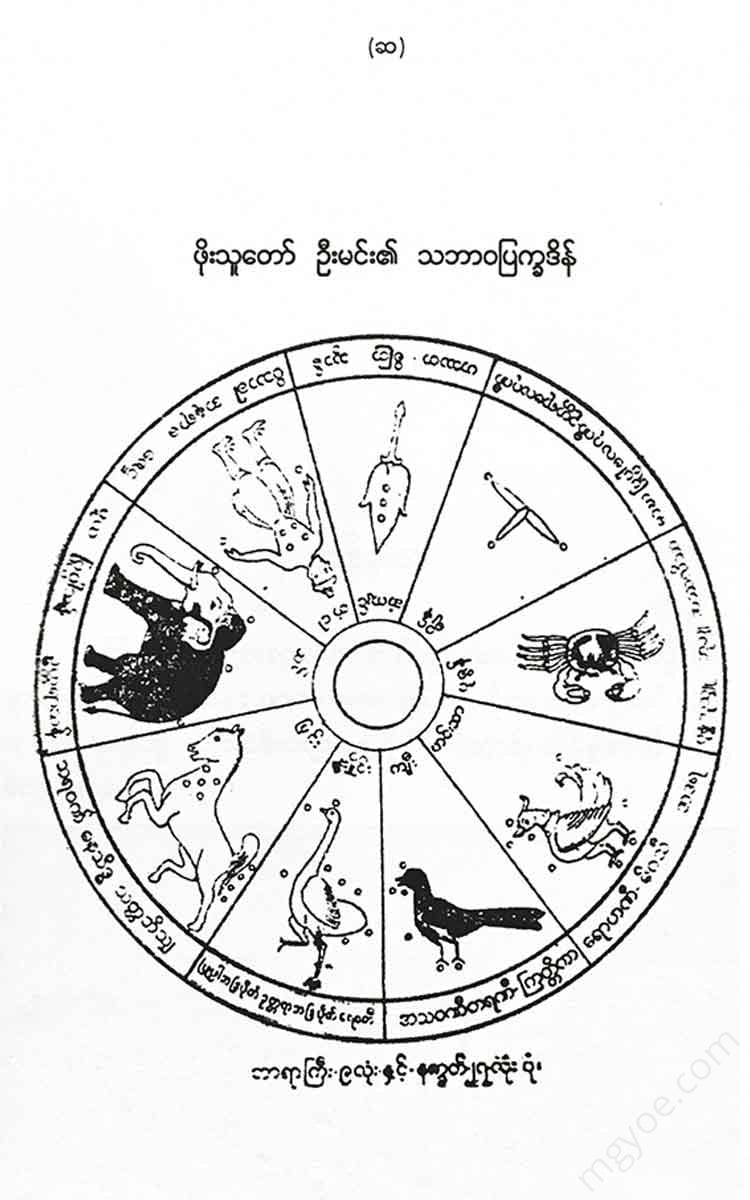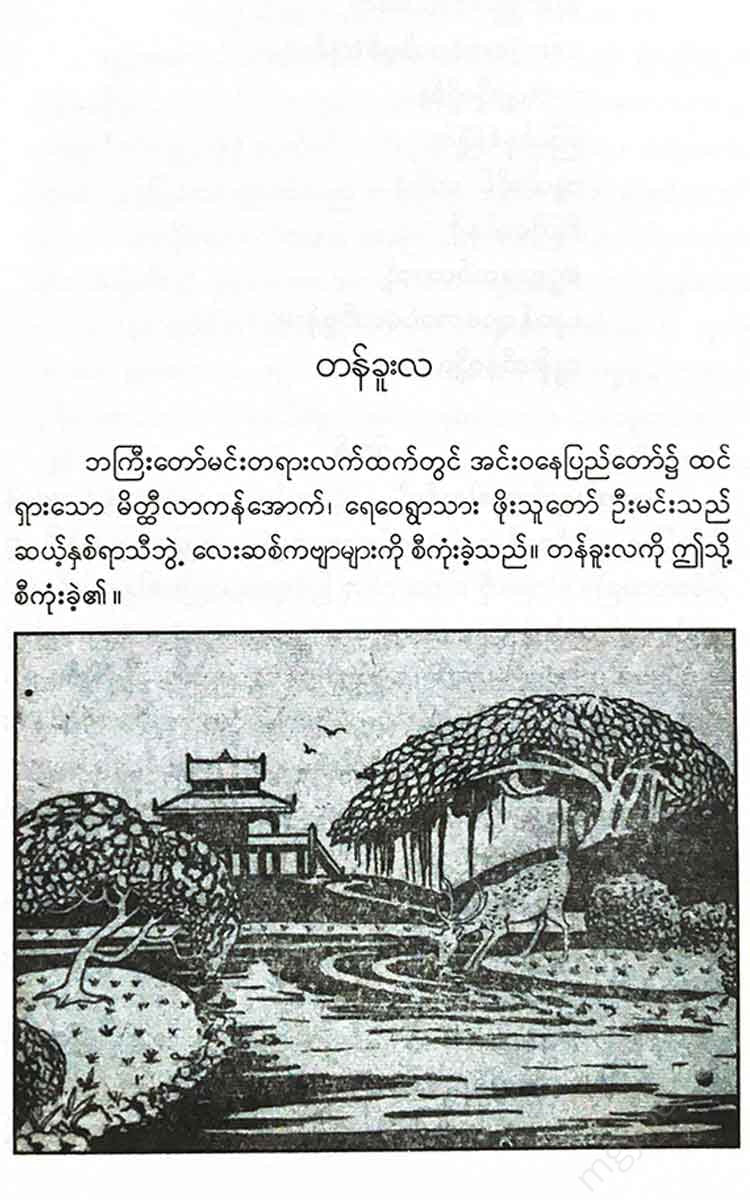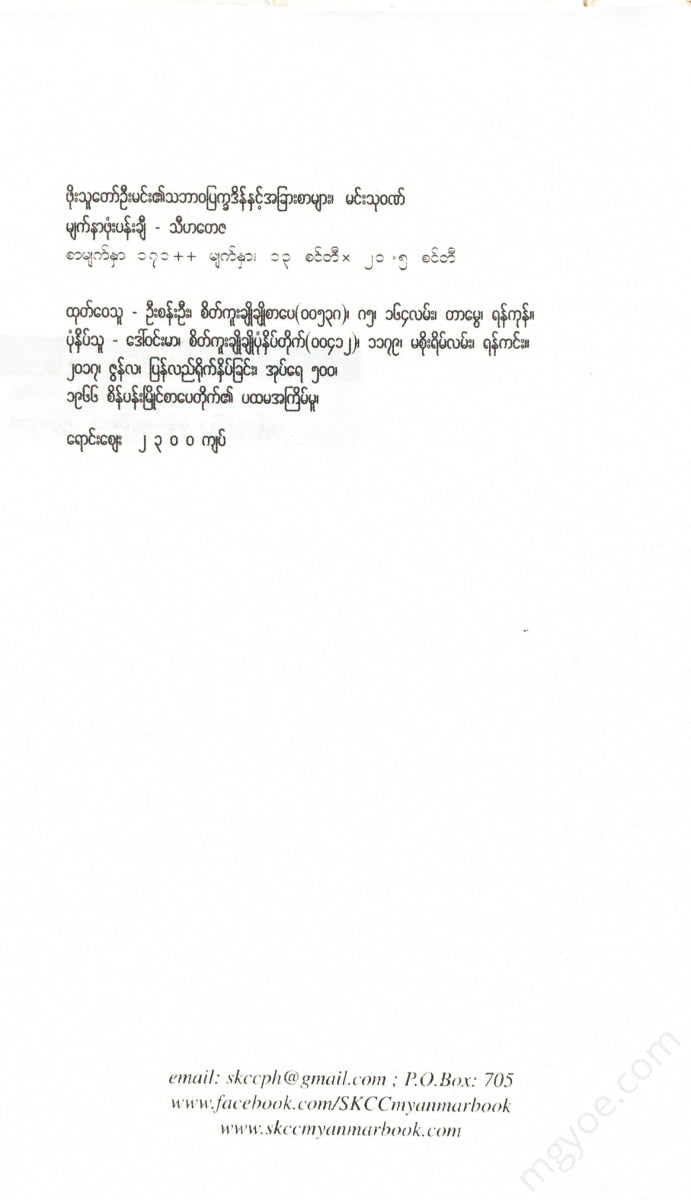စိတ်ကူးချိုချိုစာပေ
Min Thuwan - The Natural Calendar and Other Writings of Pho Thu Daw U Min
Min Thuwan - The Natural Calendar and Other Writings of Pho Thu Daw U Min
Couldn't load pickup availability
Shake off the old leaves
The smell of fresh tar.
The wind blows.
Pollen trap
Spreading like a leaf.
Two stars
The shopkeeper, Pa Win.
With a small heart
Money and money
At the edge of Mount Yugancha
The sun is shining brightly.
Shake
If we were to say in common parlance that the old leaves have fallen from the stem, it would mean that the old leaves have fallen from the stem. The old leaves are said to have fallen. We have only heard that the old leaves are shaken, and the old leaves are opened. Although we have not heard that they have fallen, we must admit that they are. However, the way a commoner thinks and the way a poet thinks are different. The way a commoner says and the way a poet says are different. Here, the commoner would say that the old leaves have fallen, but the poet makes the old leaves fall and the old leaves are said to have fallen.
Why does U Min write "Khalhs"? There could be various reasons. I will just list everything that comes to mind.
(1) He uses the scapula to fill his body with anticipation of the new task that is to come.
(2) The words are beautiful and the sound is new, so the natural calendar of Po Thu Daw U Min and other texts are used interchangeably.
(3) I like the richness of meaning and connotations hidden in these two words, so I use the word "khala". In addition to these three reasons, there may be other reasons.
It should not be assumed that U Min deliberately thought about these things and calculated them with his hands. The ingenuity of poets is amazing. When a matter arises in their hearts that they cannot keep hidden, they can express it in suitable language to make the other person like them. But they do not say where they found that language. When a matter arises to compose, the words to compose also flow out. I think it should be said that when a child sees a mother, sweet milk flows from her breast.
Of the three reasons above, I would like to expand on the third one a little. The verb khaṇḍa has other meanings besides the meaning of ọọọ. If you shake your hair after washing it, you will see the water droplets floating in the air. If you shake a bag of cotton wool, you will see the yellow powder floating. If you shake something, you will see something floating. Therefore, the subject and object verbs khaṇḍa and ọọọọọ are combined. U Min, who automatically understands the way the leaves and old leaves shake in the summer breeze, and how they fall and float away, formed a strange star by saying that the leaves fall and that they shake. Is this the only one that U Min uses? No. King Dwinthin also used it in Mahajanakapo, paragraph 198.
The forest is beautiful, the trees are beautiful, the leaves are full of power, the winter sun never comes, they never stop falling, they always fall with the falling of the pigeons, the dark and the moving, the two mango trees in the garden.
The king composed a poem about how mango trees never shed their old leaves, both in winter and summer.
The verb မြေား also has other meanings besides the meaning of မြေား. If you open a closed door, light comes in and it becomes clear. If you open a closed jar, the contents inside the jar are clearly visible. Therefore, the word မြေား and the meanings of မြေား, မြေား, and မြေား are closely related. Here, when spring comes and the dry leaves fall, the thickets of the forest are bare and clear, and the things that are hidden between the leaves are clearly visible. U Min says that the old leaves are opening. U Kyin U also describes how the wind blows open the newly sprouted shoots and buds during the month of Tapot-doe.
The end of Heman
The crickets that bite, the golden shields that are real
Because it's still windy.
In the summer, the leaves wither and fall, creating a bright light in the forest. This is how Shin Uttama Kyaw composed the Tola Gyi.
Happy New Year, Happy Thingyan
Help the wind blow, and build a new world.
The god of wisdom and the god of glass
With a thousand rays, the color of the sun
The bright and powerful, suppressing power
Show your strength and power.
To the air, to the earth, to the zenith
Leafy greens, Indian reds
Half a sigi, a handful of herbs
To the painted picture, in the Rangoon valley
The forest is full of light, without any fruit.
In short, it means that in the month of Tagu, when the sun is hot and the wind blows, the leaves turn from emerald green to golden yellow and dry, and then, like the hermit monks who have fallen from their meditation seats, they fall to the ground peacefully, so that the entire forest becomes illuminated.
Therefore, the two words "khala" are usually translated as "to fall", but U Min has combined various meanings into these words and made a amulet, which can be understood by looking at the flesh of a cow.
The words that poets have skillfully composed are very mysterious. The sky is like a cloud. If you look at the clouds that rise to the sky during the rainy season with the monsoon wind, it is difficult to grasp their colors: red, blue, yellow, and gray. It is difficult to grasp the shapes of dragons, garudas, fruits, and flowers. However, despite changing one after another, the basic meaning of clouds and mountains does not disappear. Similarly, it is difficult to grasp the meaning of the poet's words. They change in various colors and shapes. However, the basic meaning does not change or disappear. Here, it is noteworthy that Shin Uttama Kyaw described the changing colors and shapes of clouds and mountains, so we will describe them below.
Dark clouds, dark clouds, and
The clouds are mixed together, not clashing.
Buy a rainbow colored, yellow frame.
Sometimes it was dark, sometimes it was blue.
It was dark, it was bright.
A moment of silence, Yugan Htet
Surrounded on all four sides, the clouds are also
When the dragon's wing turns, the enemy is encountered.
We competed for glory, letting off steam.
Like the clouds and the turtles, the word "khala" also has various meanings. The dry leaves are shaking in the wind. They fall and fly. The leaves
